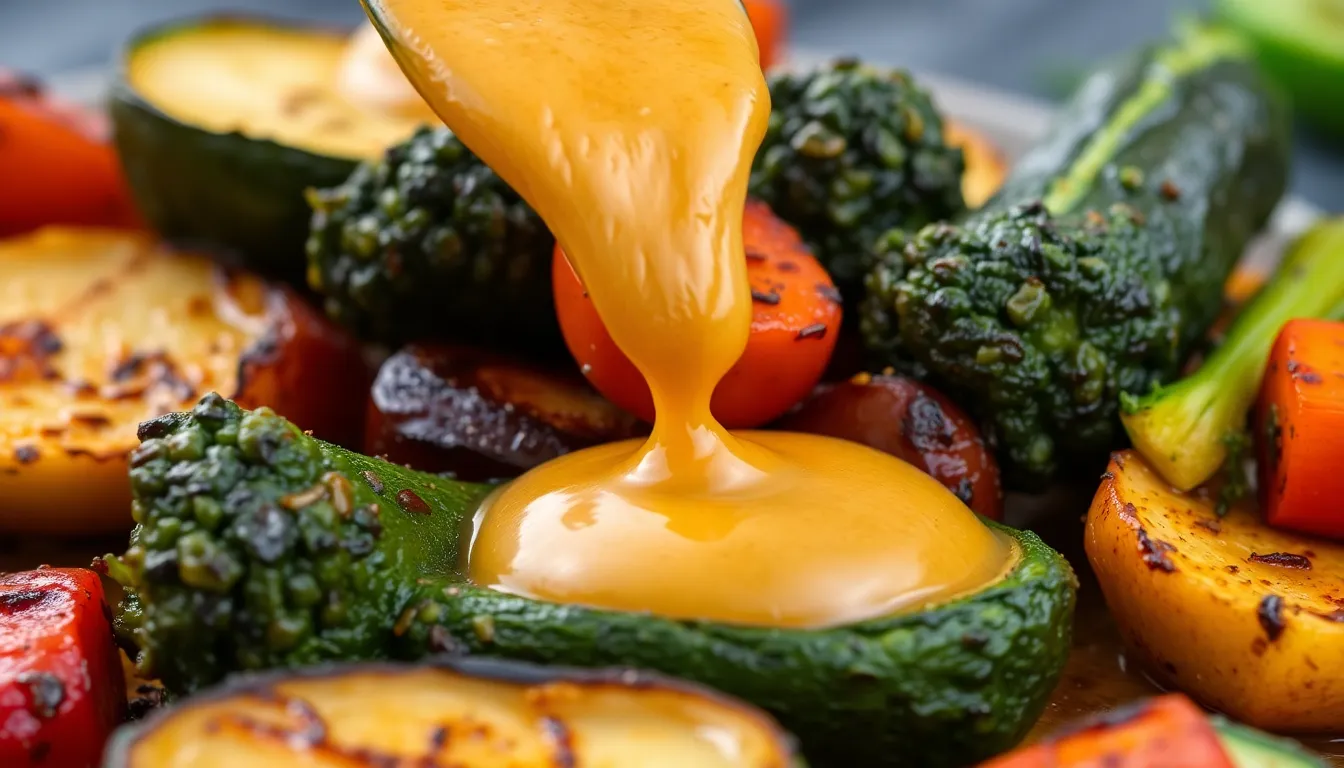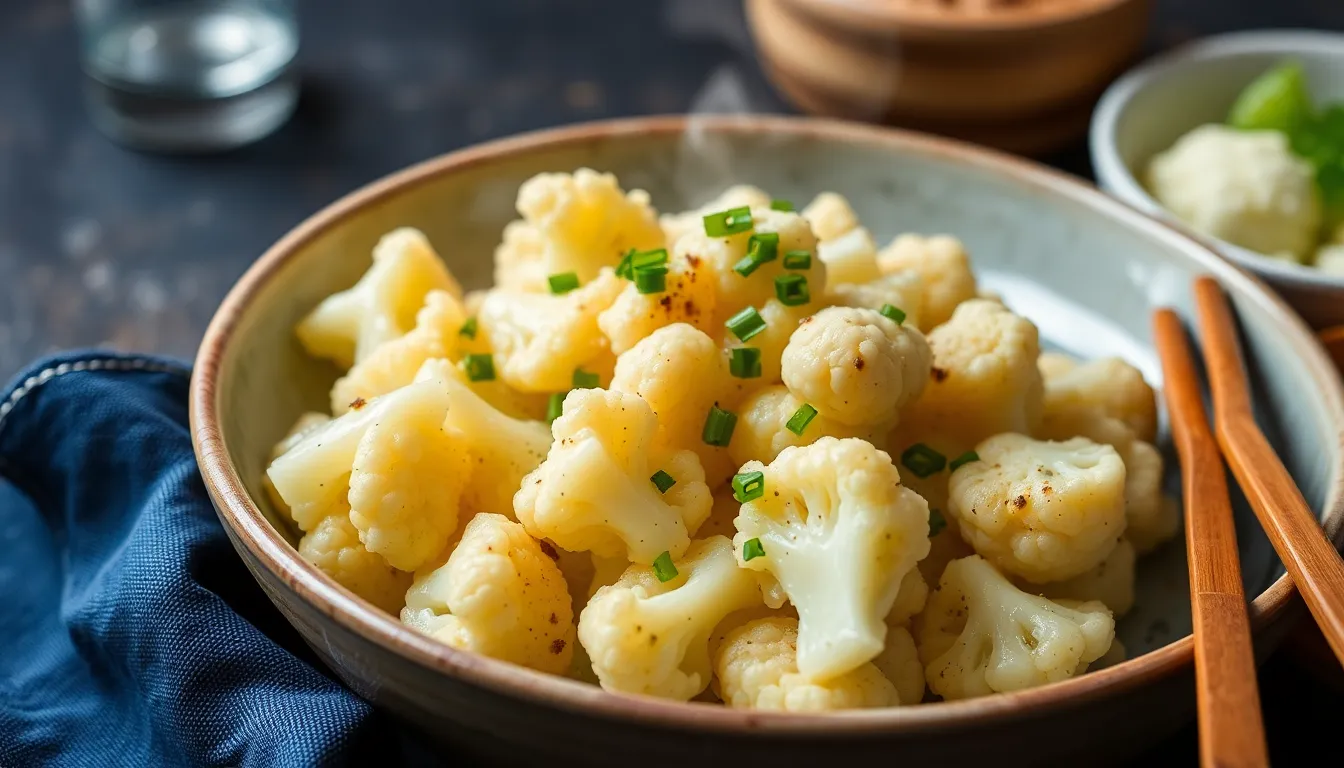Marinades for Roasted Vegetables: A Flavor Boost
Introduction
Marinades play a crucial role in cooking, especially when it comes to enhancing the natural flavors of vegetables. They serve as a way to infuse ingredients with a symphony of tastes, turning simple dishes into culinary masterpieces. When you marinate vegetables before roasting, you are not only adding flavor but also enhancing their texture, making them more appealing and delicious.
In this article, you will learn about different types of marinades, how they work, and which vegetables pair best with specific marinades. Get ready to elevate your roasted vegetable game to a whole new level!
Section 1: Understanding Marinades
1.1 What is a Marinade?
A marinade is a flavorful liquid mixture used to soak foods before cooking. Its primary purpose is to enhance the taste, tenderness, and moisture of the ingredients, particularly meats and vegetables. Marinades typically consist of:
- Oils: Olive oil, sesame oil, or any neutral oil that helps to carry flavors.
- Acids: Vinegars, citrus juices, or yogurt that tenderize and brighten the ingredients’ flavors.
- Herbs: Fresh or dried herbs that provide aromatic notes.
- Spices: Various spices, including salt, pepper, and other flavorful additions.
1.2 The Science of Marinating
Marinating works through a process known as osmosis, where the marinade penetrates the outer layer of the food. This penetration allows for flavor infusion while also softening the cellular structure of the vegetables. The end result is a more flavorful and tender dish. Moreover, marinating can also add moisture, preventing the vegetables from drying out during the roasting process.
Section 2: Types of Marinades for Roasted Vegetables
2.1 Oil-Based Marinades
Oil-based marinades are primarily composed of oils combined with herbs and spices. They provide a rich flavor while helping to maintain moisture in the roasted vegetables.
Example Marinade Recipe: Garlic and Herb Oil Marinade
- Ingredients:
- 1/2 cup olive oil
- 4 cloves garlic, minced
- 1 tablespoon fresh rosemary, chopped
- 1 tablespoon fresh thyme, chopped
- Salt and pepper to taste
- Instructions:
- In a bowl, combine olive oil, minced garlic, rosemary, thyme, salt, and pepper.
- Whisk until well mixed.
- Pour over vegetables, tossing to coat.
- Let marinate for at least 30 minutes before roasting.
2.2 Acid-Based Marinades
Acid-based marinades utilize acidic components to tenderize vegetables and add brightness to the flavors. These marinades can be especially effective for heartier vegetables.
Example Marinade Recipe: Balsamic Vinegar Marinade
- Ingredients:
- 1/4 cup balsamic vinegar
- 1/4 cup olive oil
- 1 tablespoon honey
- Salt and pepper to taste
- Instructions:
- In a bowl, whisk together balsamic vinegar, olive oil, honey, salt, and pepper.
- Pour over your choice of vegetables and toss well.
- Let sit for at least 30 minutes or up to 2 hours for deeper flavor.
2.3 Herb and Spice Blends
Herb and spice blends are a great way to pack a punch of flavor into your roasted vegetables without relying heavily on oils or acids. They can be dry rubs or pastes that incorporate various spices and herbs.
Example Marinade Recipe: Moroccan Spice Paste
- Ingredients:
- 2 teaspoons cumin
- 2 teaspoons coriander
- 1 teaspoon paprika
- 1 teaspoon cinnamon
- Salt to taste
- 2 tablespoons olive oil
- Instructions:
- Mix the spices with olive oil in a small bowl to create a paste.
- Toss with vegetables until evenly coated.
- Let marinate for 30 minutes before roasting.
Section 3: Marinade Pairings for Different Vegetables
3.1 Root Vegetables
Root vegetables such as carrots, potatoes, and beets benefit from sweet and tangy marinades. They have a natural sweetness that pairs beautifully with honey or balsamic vinegar.
3.2 Leafy Greens
Leafy greens like kale and spinach require lighter marinades that enhance their natural flavors without overpowering them. A simple citrus-based dressing works wonders.
3.3 Cruciferous Vegetables
Cruciferous vegetables, such as broccoli and cauliflower, can handle bolder marinades with a kick. Spicy soy-ginger or garlic-based blends can enhance their earthy flavor.
3.4 Starchy Vegetables
Starchy vegetables, including sweet potatoes and corn, thrive with herbaceous marinades that complement their texture. Olive oil and rosemary or garlic and thyme work well.
HTML Table: Marinade Pairings for Various Vegetables
| Vegetable Type | Recommended Marinade | Flavor Profile |
|---|---|---|
| Root Vegetables | Honey-Mustard Vinaigrette | Sweet and Tangy |
| Leafy Greens | Lemon-Garlic Herb Marinade | Citrusy and Fresh |
| Cruciferous Vegetables | Spicy Soy-Ginger Marinade | Umami and Spicy |
| Starchy Vegetables | Olive Oil and Rosemary | Herbaceous and Earthy |
Section 4: How to Marinate Vegetables Properly
4.1 Timing
Timing is crucial when it comes to marinating vegetables. The general rule of thumb is to marinate for at least 30 minutes, but the timing can vary based on the type of vegetable:
- Leafy Greens: 15-30 minutes
- Root Vegetables: 30 minutes to 2 hours
- Cruciferous Vegetables: 30 minutes to 1 hour
- Starchy Vegetables: 30 minutes to 2 hours
It’s essential not to over-marinate, especially with acid-based marinades, as they can begin to break down the vegetables and lead to a mushy texture.
4.2 Techniques for Marinating
Here are some effective techniques for marinating vegetables:
- Bag Method: Place the vegetables and marinade in a resealable plastic bag, remove the air, and massage the bag to coat the vegetables evenly.
- Bowl Method: Toss the vegetables in a bowl with the marinade and cover with plastic wrap, allowing them to sit at room temperature or in the refrigerator.
- Tray Method: Spread the vegetables in a single layer on a tray and pour the marinade over them. Ensure even coverage and allow to sit.
4.3 Storage Tips
When marinating vegetables, it’s essential to keep food safety in mind:
- Always marinate in the refrigerator, especially if marinating for longer periods (more than 30 minutes).
- Avoid using metal containers that may react with the acid in the marinade.
- Use the marinated vegetables within a day or two for the best quality.
Conclusion
Marinating roasted vegetables is an excellent way to enhance their flavors and textures, turning simple dishes into extraordinary ones. By understanding the different types of marinades and their specific pairings with various vegetables, you can bring creativity and versatility to your cooking.
Experiment with different ingredients and techniques to find the perfect combinations that suit your palate. So, grab your vegetables, mix up a batch of marinade, and enjoy the art of flavor-infusing cooking!




